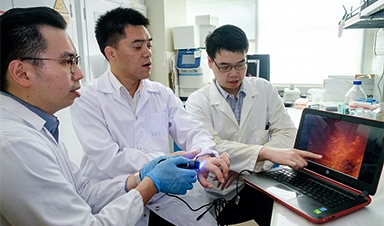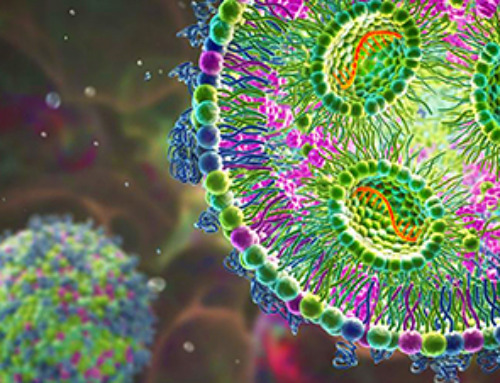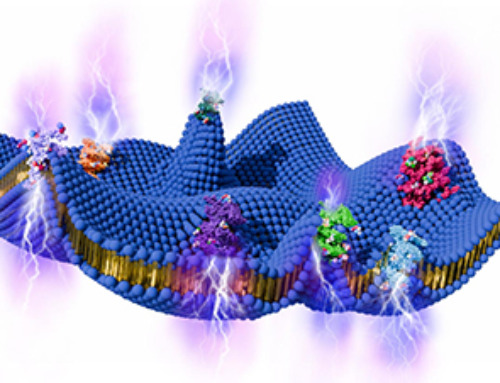Clinicians presently find it hard to predict how scars will form after surgery or after a burn wound, without using invasive testing.
The research team used new nanoparticles in animals and human skin samples to demonstrate the potential to rapidly and accurately predict whether a wound is likely to result in excessive scarring as occurs in skin contractures and keloids.
If required, doctors can then take conventional preventive steps to lessen scar formation, such as using silicon sheets to ensure a wound is flat and moist.
In developed countries alone, around 100 million patients will develop scars each year, arising from 80 million elective and trauma surgery operations. In Singapore, an estimated 400,000 people (1 in 12 people going through procedures) develop scars each year because of surgery.
Excessive scarring can greatly affect a patient’s quality of life, both psychologically and physically, as the scars can inhibit activity and movement, and can be painful when strained.
The new method was formulated by a team led by Assistant Professor Xu Chenjie from NTU’s School of Chemical and Biomedical Engineering, nanoscience expert Professor Chad A Mirkin from Northwestern University, United States, and Dr Amy S Paller, Chair of Dermatology at Northwestern University Feinberg School of Medicine.
Image Credit: NTU Singapore
News This Week
Nanomedicine in 2026: Experts Predict the Year Ahead
Progress in nanomedicine is almost as fast as the science is small. Over the last year, we've seen an abundance of headlines covering medical R&D at the nanoscale: polymer-coated nanoparticles targeting ovarian cancer, Albumin recruiting nanoparticles for [...]
Lipid nanoparticles could unlock access for millions of autoimmune patients
Capstan Therapeutics scientists demonstrate that lipid nanoparticles can engineer CAR T cells within the body without laboratory cell manufacturing and ex vivo expansion. The method using targeted lipid nanoparticles (tLNPs) is designed to deliver [...]
The Brain’s Strange Way of Computing Could Explain Consciousness
Consciousness may emerge not from code, but from the way living brains physically compute. Discussions about consciousness often stall between two deeply rooted viewpoints. One is computational functionalism, which holds that cognition can be [...]
First breathing ‘lung-on-chip’ developed using genetically identical cells
Researchers at the Francis Crick Institute and AlveoliX have developed the first human lung-on-chip model using stem cells taken from only one person. These chips simulate breathing motions and lung disease in an individual, [...]
Cell Membranes May Act Like Tiny Power Generators
Living cells may generate electricity through the natural motion of their membranes. These fast electrical signals could play a role in how cells communicate and sense their surroundings. Scientists have proposed a new theoretical [...]
This Viral RNA Structure Could Lead to a Universal Antiviral Drug
Researchers identify a shared RNA-protein interaction that could lead to broad-spectrum antiviral treatments for enteroviruses. A new study from the University of Maryland, Baltimore County (UMBC), published in Nature Communications, explains how enteroviruses begin reproducing [...]
New study suggests a way to rejuvenate the immune system
Stimulating the liver to produce some of the signals of the thymus can reverse age-related declines in T-cell populations and enhance response to vaccination. As people age, their immune system function declines. T cell [...]
Nerve Damage Can Disrupt Immunity Across the Entire Body
A single nerve injury can quietly reshape the immune system across the entire body. Preclinical research from McGill University suggests that nerve injuries may lead to long-lasting changes in the immune system, and these [...]














Leave A Comment